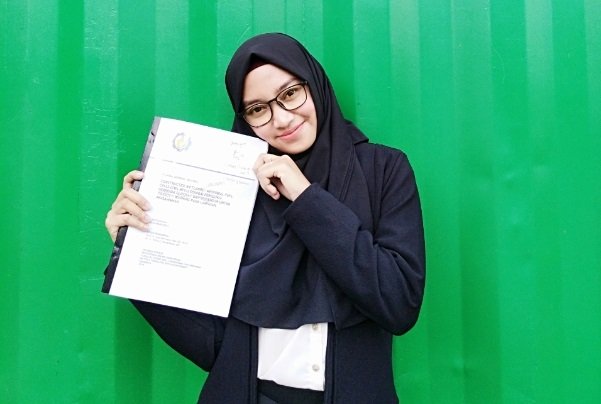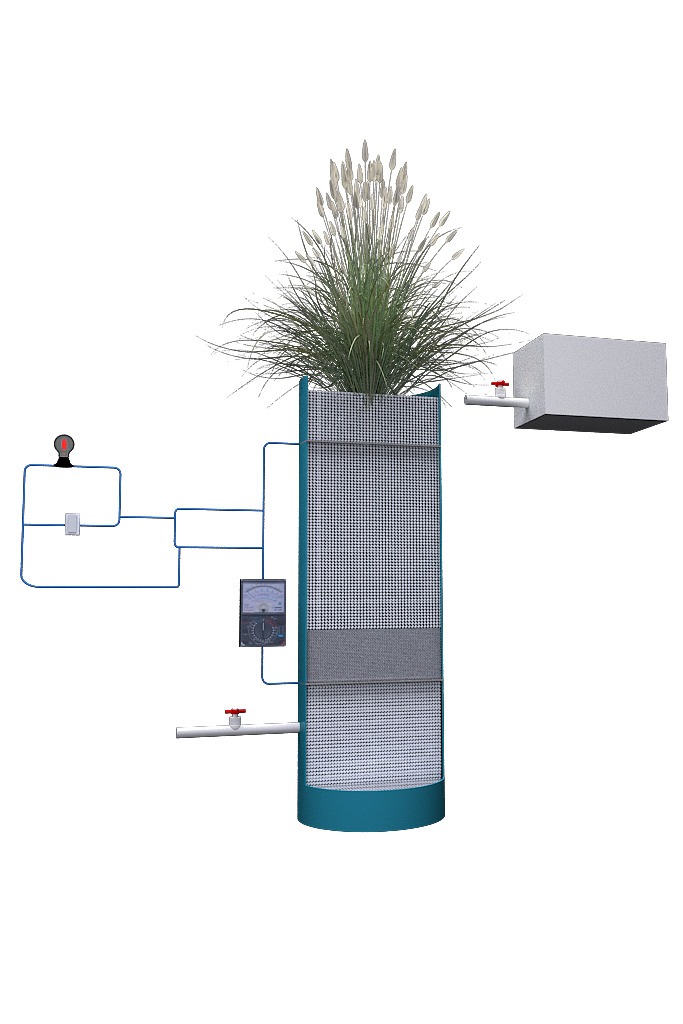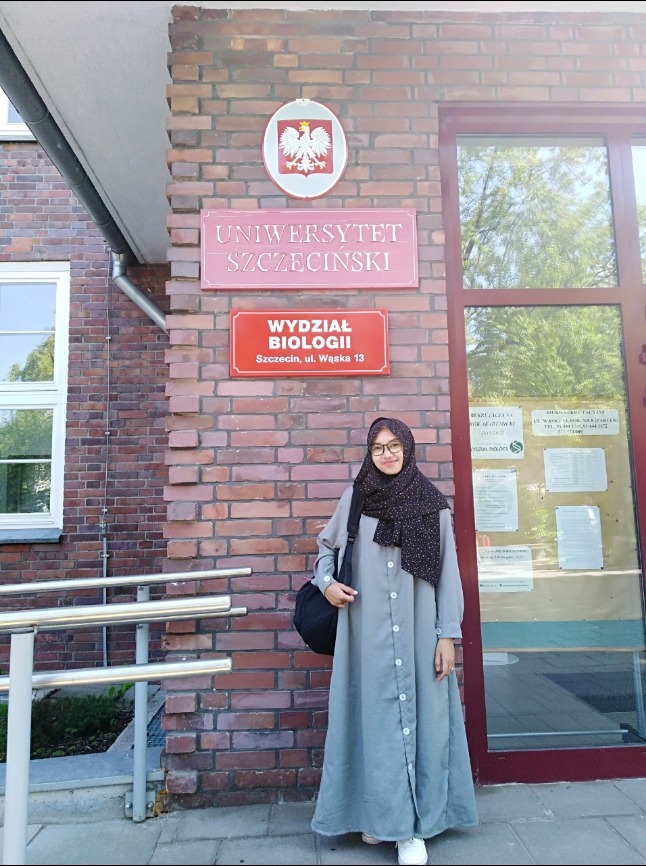ITS Student Innovations to Reduce Water Pollution from Agricultural Irrigation
 Kiki Gustinasari, a doctoral student researching to reduce water pollution in the agricultural sector
Kiki Gustinasari, a doctoral student researching to reduce water pollution in the agricultural sector
ITS Campus, ITS News – Chemical fertilizer waste and pesticides from agricultural irrigation activities become one of the causes of water pollution on the earth. Whereas the agriculture sector itself uses water to irrigation about 70 percent to 90 percent of all water needs on Earth. Looking at this condition, students Institut Teknologi Sepuluh Nopember (ITS) designed the research that expected to help reduce water pollution.
The doctoral student from the Department of Environmental Engineering, Kiki Gustinasari, is conducting research titled Constructed Wetlands-Microbial Fuel Cells (CWs-MFCs) as a reduction of herbicide Glifosat and Biosensor application for Toxicity Warning On the rice field runoff.
As explained by Kiki, the purpose of this research is to prove that CWs MFCs as an environmentally friendly infrastructure can reduce the residual glycosides of glyphosate, which is a type of pesticide in the agriculture sector. She admitted that the use of glyphosate herbicide adversely impacts the living creatures in the waters. “It can lead to a high mortality rate for amphibious animals, as well as a lethal effect on some plankton,” she said.

Visualization of laboratory CWs-MFCs reactors used for experiments on Kiki Gustinasari research
MFCs itself, said Kiki, is a technology of energy generation and pollution reduction through bacteria. While CWs is a natural-based system that is widely used in agriculture as a filter of the agricultural area with a water body. The merger of MFCs into CWs proved to be able to improve CWs performance in reducing the herbicide residue of glyphosate.
As Kiki explained, anode to the MFCs triggered the CWs anaerobic reaction. “This approach has dual advantages such as the performance intensification of CWs and power producers,” said the student scholarship recipient to a doctoral education program for Pendidikan Magister Menuju Doktor untuk Sarjana Unggul (PMDSU).
In addition, said Kiki, MFCs-CWs in this research also aims to be an early warning to the inclusion of unwanted materials on the rice field runoff. This is due to these types of green infrastructures capable of generating electrical signals through microbial performance. “The microbial performance will drop if there are toxic substances that interfere with the microbial life,” She explained.
With the increase in microbial performance, the added Kiki, then it can be known there are unwanted substances entering the farm area. The decline will then be marked by an indication of electricity dropping. “This indication is an early warning as the basis for the next decision,” said the woman from Jombang.
In a study aimed at the dissertation, the student-led by Prof. Ir. Joni Hermana This MSc ES Ph.D. reveals, many other researchers are using CWs to deal with agricultural waste. However, previous studies have only made use of one function, namely reducing pollutants. “While the concept of research that I do this besides to reduce pollutants, as well as an early warning system,” said the student who born 1 August 1994.
Hopefully, this research be able to not only run smoothly until the end, but also get results as benefit for the community and the development of science. “There is still the possibility of this research will be applied in the field, of course with the support of the government,” she concluded. (vio/rev/ITS Public Relations)

Kiki Gustinasari when joining International Scholarship Exchange of Ph.D. Candidates and Academic Staff – PROM Programme in University of Szczecin, Polandia
Related News
-
Faithful in Times of Joy and Sorrow, Married Couple Graduate with Doctorates Together at ITS
ITS Campus, ITS News — As though guided by one heart and one soul, Dr Hanugra Aulia Sidharta ST
August 22, 2019 09:08 -
ITS Wins 2024 Project Implementation Award for Commitment to Gender Implementation
ITS Campus, ITS News —Not only technology-oriented, Institut Teknologi Sepuluh Nopember (ITS) also show its commitment to support gender
August 22, 2019 09:08 -
ITS Professor Researched the Role of Human Integration in Sustainable Architecture
ITS Campus, ITS News –The developing era has an impact on many aspects of life, including in the field
August 22, 2019 09:08 -
ITS Sends Off Group for Joint Homecoming to 64 Destination Areas
ITS Campus, ITS News — Approaching Eid al-Fitr, the Sepuluh Nopember Institute of Technology (ITS) is once again facilitating academics who want
August 22, 2019 09:08
